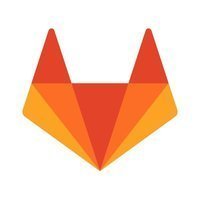Need advice about which tool to choose?Ask the StackShare community!
Jenkins X vs wercker: What are the differences?
Developers describe Jenkins X as "A CI/CD solution for cloud applications on Kubernetes". Jenkins X is a CI/CD solution for modern cloud applications on Kubernetes. On the other hand, wercker is detailed as "Build, test, and deploy container-native applications". Wercker is a CI/CD developer automation platform designed for Microservices & Container Architecture.
Jenkins X and wercker can be primarily classified as "Continuous Integration" tools.
Some of the features offered by Jenkins X are:
- Automated CI and CD - Rather than having to have deep knowledge of the internals of Jenkins Pipeline, Jenkins X will default awesome pipelines for your projects that implements fully CI and CD
- Environment Promotion via GitOps - Each team gets a set of Environments. Jenkins X then automates the management of the Environments and the Promotion of new versions of Applications between Environments via GitOps
- Pull Request Preview Environments - Jenkins X automatically spins up Preview Environments for your Pull Requests so you can get fast feedback before changes are merged to master
On the other hand, wercker provides the following key features:
- Pipelines - Wercker's Pipelines enable developers to fully automate builds, tests and deployments with Docker as a first class citizen.
- Workflows - With Workflows: a collection of pipelines can be chained and triggered to achieve complex automation goals.
- Steps Store - A step is a self contained best practice for accomplishing a specific automation task. Build your own or help yourself to our community based store.
"Kubernetes integration" is the primary reason why developers consider Jenkins X over the competitors, whereas "Automatic Deployments" was stated as the key factor in picking wercker.
Jenkins X is an open source tool with 2.8K GitHub stars and 498 GitHub forks. Here's a link to Jenkins X's open source repository on GitHub.
FashionUnited, Hazeorid, and DataHero are some of the popular companies that use wercker, whereas Jenkins X is used by letgo, Zetaops, and Proente. wercker has a broader approval, being mentioned in 40 company stacks & 23 developers stacks; compared to Jenkins X, which is listed in 3 company stacks and 7 developer stacks.
We are a mid-size startup running Scala apps. Moving from Jenkins/EC2 to Spinnaker/EKS and looking for a tool to cover our CI/CD needs. Our code lives on GitHub, artifacts in nexus, images in ECR.
Drone is out, GitHub actions are being considered along with Circle CI and GitLab CI.
We primarily need:
- Fast SBT builds (caching)
- Low maintenance overhead (ideally serverless)
- Everything as code
- Ease of use
I think I've tried most of the CI tools out there at some point. It took me a while to get around to Buildkite because at first I didn't see much point given it seemed like you had to run the agent yourself. Eventually it dawned on me why this approach was more ingenious than I realised:
Running my app in a production (or production-like) environment was already a solved problem, because everything was already in some form of "everything as code". Having a test environment where the only difference was adding the Buildkite agent was a trivial addition.
It means that dev/test/prod parity is simple to achieve and maintain. It's also proven to be much easier to support than trying to deal with the problems that come with trying to force an app to fit into the nuances and constraints that are imposed by the containers/runtime of a CI service. When you completely control all of the environment the tests are running in you define those constraints too. It's been a great balance between a managed service and the flexibility of running it yourself.
And while none of my needs have hit the scale of Shopify (I saw one of their engineers speak about it at a conference once, I can't find the video now though 😞) it's good to know I can scale out my worker nodes to hundreds of thousands of workers to reduce the time it takes for my tests to run.
I would recommend you to consider the JFrog Platform that includes JFrog Pipelines - it will allow you to manage the full artifact life cycle for your sbt, docker and other technologies, and automate all of your CI and CD using cloud native declarative yaml pipelines. Will integrate smoothly with all your other toolset.
more configurable to setup ci/cd: * It can provide caching when build sbt, just add this section to yml file * Easy to use, many documentation
Weakness: * Need use gitlab as repository to bring more powerful configuration
We migrated all our CI/CD pipelines to CircleCI back in 2017 and are particularly happy about it since!
Our top loved feature is unlimited parallelism. We can run as many builds concurrently as we want.
We also use orbs, pipeline parameters, reusable commands, build cache, test insights.
For some of the heavier repos, we use a larger resource class and mount RAMdisk to a file system to speed up builds.
Pros of Jenkins X
- Kubernetes integration7
- Scripted Pipelines5
- GitOps4
Pros of wercker
- Automatic Deployments35
- Free33
- Easy config via yaml25
- Awesome UI23
- Github integration23
- Continuous Deployment22
- Supports both Github and Bitbucket16
- Easy to setup14
- Reliable12
- Bitbucket Integration11
- Community-driven components (boxes and steps)4
- Fast builds4
- Easy to get started4
- Docker based4
- Easy UI3
- Flexible configuration via YAML3
- Multi-target deploys2
- Trigger by branch name1
- Great UI, free and an active Slack channel :)1
- Docker support1
- Multiple configurable build steps1
Sign up to add or upvote prosMake informed product decisions
Cons of Jenkins X
- Complexity1




































